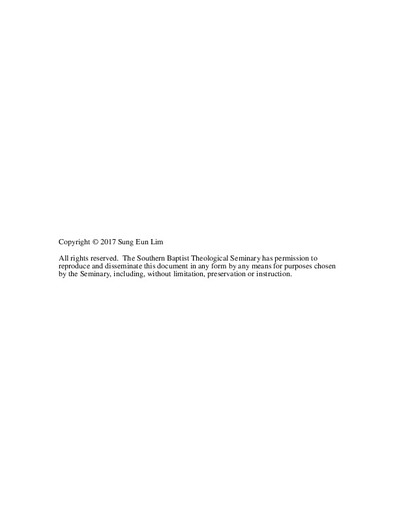“Under the Law”: The Significance of the Phrase in Paul’s Thought
Abstract
Traditionally, Paul's phrase "under the law" has been interpreted as a reference to being under a legal/legalistic system of the law, being under the law as a guiding/restraining power, or being under the curse/condemnation of the law. Recently many scholars have avoided the condemning aspect of the law in existence under the law. Especially, James D. G. Dunn and N. T. Wright tend to reject the law’s condemning function as its “negative” function (Dunn) or to minimize it as a "secondary" element (Wright). Thus, they, emphasizing the law's constraining element, understand that with the salvation-historical assumptions they posited, Paul uses the phrase as a reference to Jewish covenantal experience under the law of Moses prior to Christ─Jews’ nationalistic misuse of the law under the law (Dunn) and Israel’s continuing curse of exile under the law (Wright). Here, despite their emphasis on eschatological elements in Paul, Dunn and Wright, from their view of covenantal nomism, emphasizing the law’s guardianship of Israel in salvation history, fail to see the just, eschatological condemning function of the law in the existence under the law apart from Christ, and thereby the forensic, eschatological aspect of freedom in Christ. In this dissertation, I investigate every occurrence of the phrase “under the law,” and develop my thesis that in his view of eschatological situation, Paul uses the phrase to refer to the universal human plight under the law's eschatological condemnation, from which Christ set us into all the eschatological blessings in Christ─sonship, freedom, and new life.

